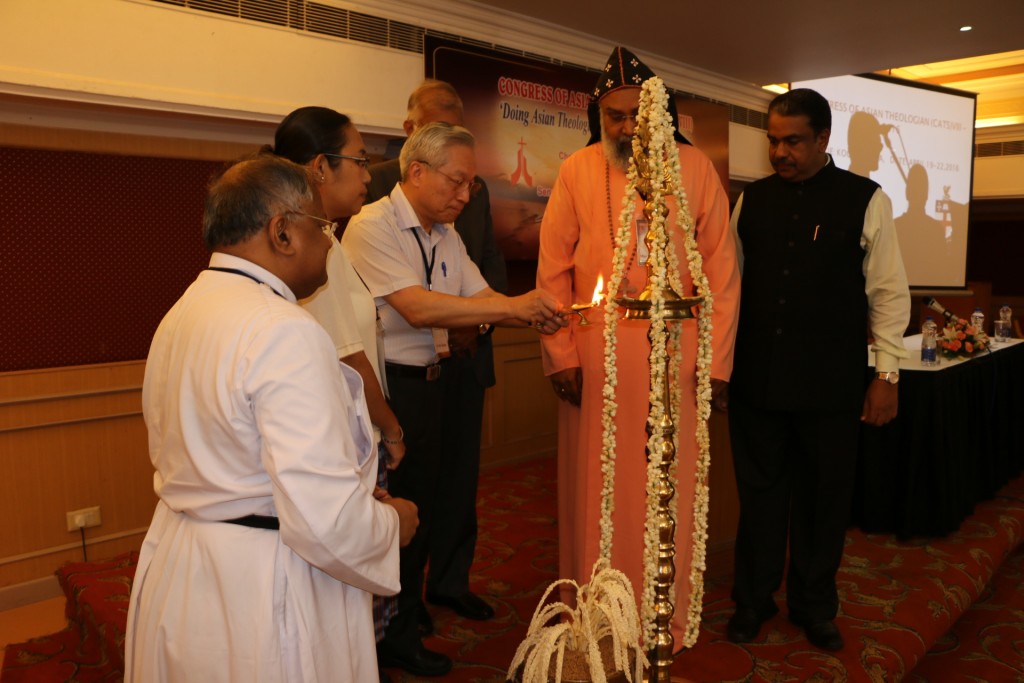Asian Theologians are Called to Respond for a New World Order Leading to Fullness of Life for All
 "Our theological endeavours today have to respond to the chaotic situation and work for a new world order that can lead to justice, peace and fullness of life for all", said Dr. Huang Po Ho, a prominent Asian theologian from the Chang Jung University in Taiwan, in a keynote address delivered at the Eighth Congress of Asian Theologians being held in Kochi, Kerala, India from 19 to 22 April.
"Our theological endeavours today have to respond to the chaotic situation and work for a new world order that can lead to justice, peace and fullness of life for all", said Dr. Huang Po Ho, a prominent Asian theologian from the Chang Jung University in Taiwan, in a keynote address delivered at the Eighth Congress of Asian Theologians being held in Kochi, Kerala, India from 19 to 22 April.
"Theologically speaking, globalisation is a contemporary human attempt to overmaster the house of God with market principles under a dominant power of capitals," said Dr Huang Po Ho.
Though "it is in Asia that all world religions including Christianity were born and nurtured, Christian theologies were imported to Asia as missionary instruments to convert people under the wider circumstances of political contexts of colonisation”, added Dr. Po Ho.
Organised by the Christian Conference of Asia ( CCA) and hosted by the Senate of Serampore College ( University), more than one hundreds Asian theologians from various Asian countries are participating in the Eighth Congress of Asian Theologians (CATS VIII).
During the opening session of CATS, the president of the Senate of Serampore Bishop Dr. Issac Mar Philexinos said, "we gather for the Eighth Congress of Asian Theolgians to feel the wider theological pulse of Asia". Bishop Philexinos added that, “what the churches want are not 'arm-chair' theologians but 'grass-root' theologians concerned with issues relevant to the local churches”.
While delivering introductory remarks and welcoming participants, Dr. Mathews George Chunakara, General Secretary of the Christian Conference of Asia said that, " The new governing board and programme committee of CCA has already affirmed commitments with a greater sense of ownership of CATS by Asian churches”.
“CCA will continue to be committed to provide space for more frequent engagements for Asian theologians in the coming days and years, although we face constraints in terms of financial and human resources”, added CCA General Secretary.
Bishop Dr. John S Sadanananda, master of the Senate of Serampore, in his Biblical reflections at the opening session reiterated the need to "hear and learn afresh what is to speak and sing in our own land among the contemporary people of God."
CATS was initiated by CCA in 1997.










